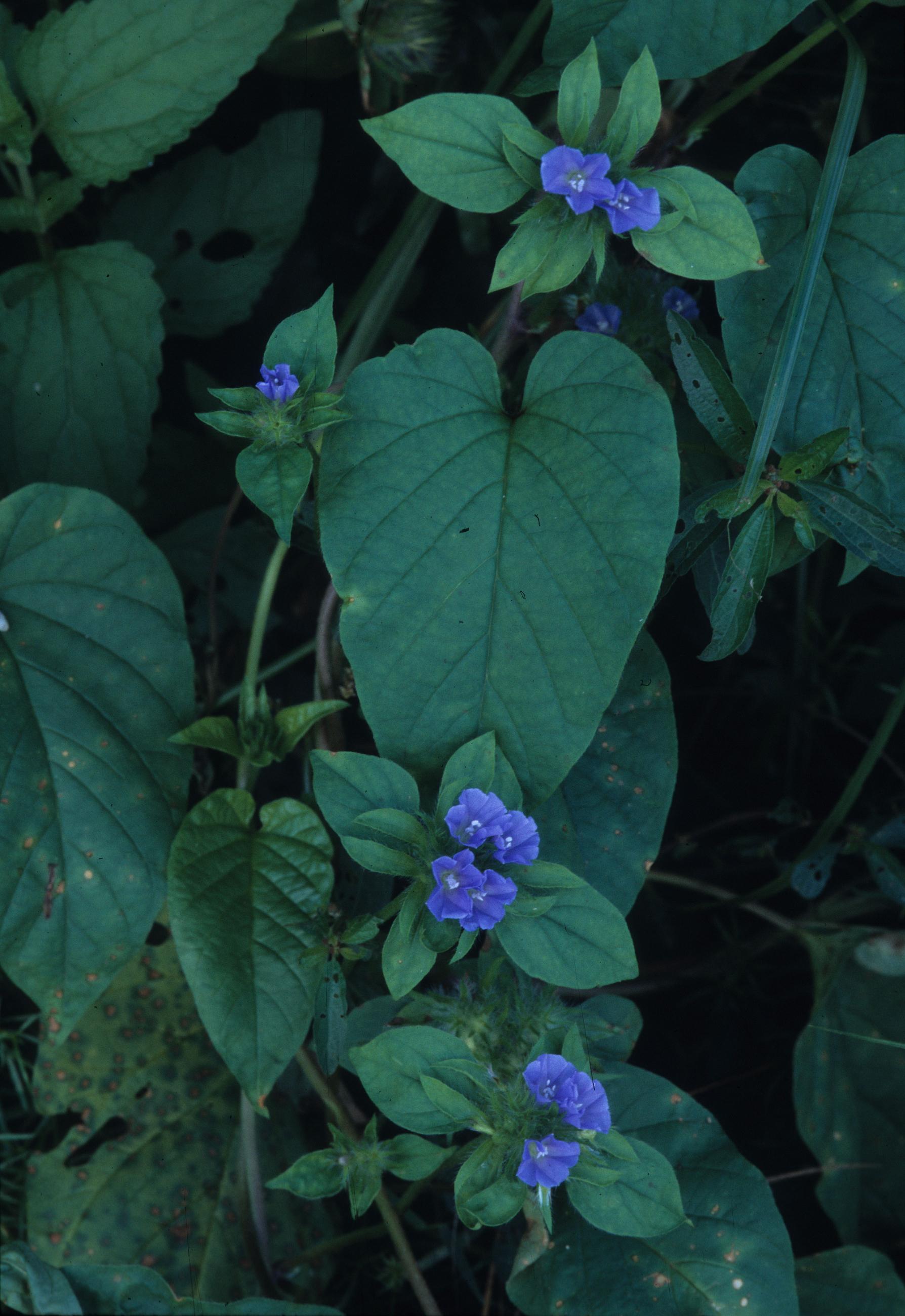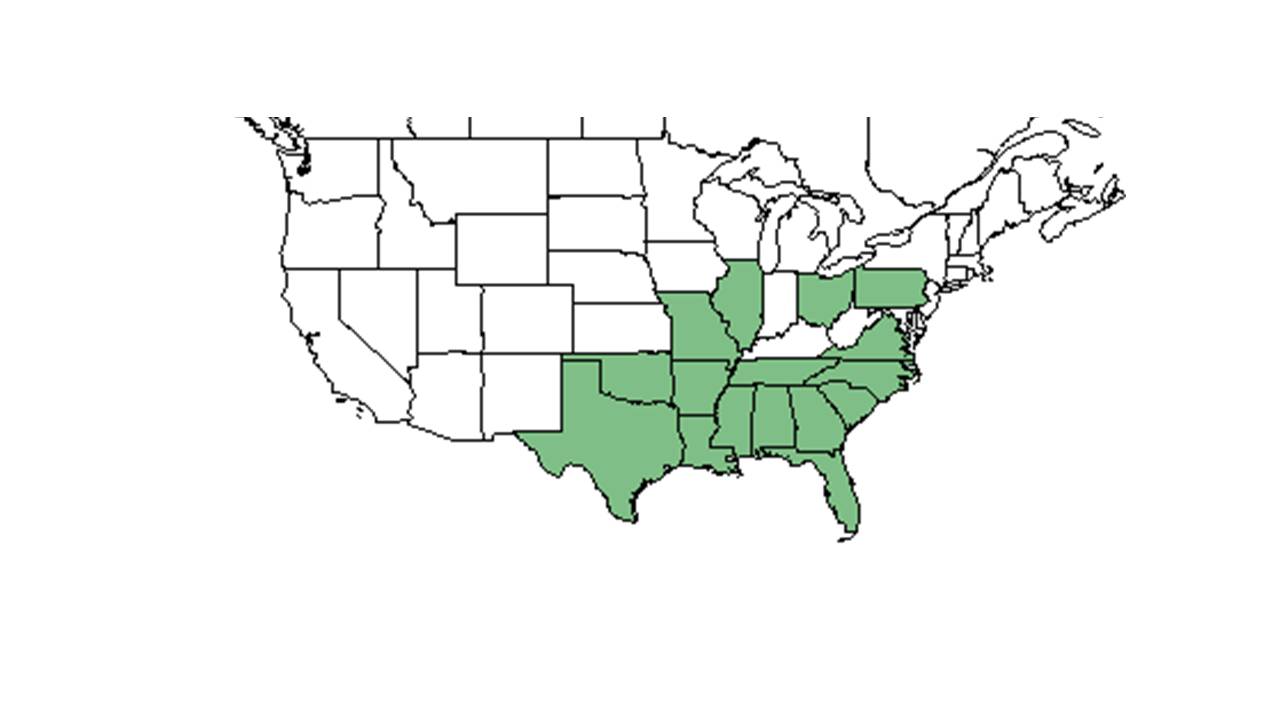Difference between revisions of "Jacquemontia tamnifolia"
KatieMccoy (talk | contribs) |
(→Description) |
||
| Line 22: | Line 22: | ||
==Description== | ==Description== | ||
<!-- Basic life history facts such as annual/perrenial, monoecious/dioecious, root morphology, seed type, etc. --> | <!-- Basic life history facts such as annual/perrenial, monoecious/dioecious, root morphology, seed type, etc. --> | ||
| + | This species has a climbing and twining behavior (FSU Herbarium). | ||
| − | + | "Herbaceous, annual, twining vine. Leaves ovate to elliptic-ovate, 5-12 cm long, acuminate, cordate, or the base rarely rounded. Peduncles equaling or longer than the subtending leaf; inflorescence capitate, 2-3 cm broad, subtended by lanceolate or elliptic, foliaceous bracts; sepals lanceolate to subulate, densely fulvous-hirsute; corolla blue, funnelform, 1-2 cm broad; stigma lobes 2, ovoid or oblong, styles fused, ovary 2-locular. Capsule subglobose, 4-6 mm broad; seeds brownish black, glabrous, ca. 2 mm long." Radford et al 1964 | |
==Distribution== | ==Distribution== | ||
Revision as of 20:12, 3 February 2016
| Jacquemontia tamnifolia | |
|---|---|

| |
| Photo was taken by Gil Nelson | |
| Scientific classification | |
| Kingdom: | Plantae |
| Division: | Magnoliophyta - Flowering plants |
| Class: | Magnoliopsida – Dicotyledons |
| Order: | Solanales |
| Family: | Convolvulaceae |
| Genus: | Jacquemontia |
| Species: | J. tamnifolia |
| Binomial name | |
| Jacquemontia tamnifolia (L.) Griseb. | |

| |
| Natural range of Jacquemontia tamnifolia from USDA NRCS Plants Database. | |
Common name: hairy clustervine
Contents
Taxonomic notes
Description
This species has a climbing and twining behavior (FSU Herbarium).
"Herbaceous, annual, twining vine. Leaves ovate to elliptic-ovate, 5-12 cm long, acuminate, cordate, or the base rarely rounded. Peduncles equaling or longer than the subtending leaf; inflorescence capitate, 2-3 cm broad, subtended by lanceolate or elliptic, foliaceous bracts; sepals lanceolate to subulate, densely fulvous-hirsute; corolla blue, funnelform, 1-2 cm broad; stigma lobes 2, ovoid or oblong, styles fused, ovary 2-locular. Capsule subglobose, 4-6 mm broad; seeds brownish black, glabrous, ca. 2 mm long." Radford et al 1964
Distribution
Ecology
Habitat
This species has been found in floodplains and savannahs as well as disturbed areas such as old fields, corn fields, powerline corridors, along roadsides, and in grazed fallow fields (FSU Herbarium).
Phenology
Seed dispersal
Seed bank and germination
Fire ecology
Pollination
Use by animals
Diseases and parasites
Conservation and Management
Cultivation and restoration
Photo Gallery
References and notes
Florida State University Robert K. Godfrey Herbarium database. URL: http://herbarium.bio.fsu.edu. Last accessed: June 2014. Collectors: Andre F. Clewell, J. D. Dwyer, W. E. Harmon, Lisa Keppner, R. Komarek, Robert L. Lazor, and R. A. Norris. States and Counties: Florida: Leon and Washington. Georgia: Colquitt, Decatur, Grady, and Thomas. Countries: Honduras.